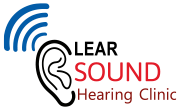
Protect Your Ears from the Cold and Prevent Hearing Loss
As winter approaches, we gear up to shield ourselves from the cold. However, amidst our preparations, we often overlook a crucial aspect – safeguarding our hearing health.
This season, let’s take a closer look at the relationship between winter’s chill and the well-being of our ears, recognizing the importance of protecting this often-neglected sense in our overall winter wellness routine.
Why ear pain in cold?
As we navigate through the winter months, understanding the common risks and factors contributing to hearing issues becomes paramount. Studies reveal a noticeable increase in hearing loss cases during winter. Exposure to cold wind and low temperatures is a primary risk factor. The direct impact of chilly air on the ears can lead to discomfort, pain, and, if left unaddressed, potential hearing damage
The constriction of blood vessels, a natural response to low temperatures can limit blood flow to the ears. This decreased circulation makes the delicate structures of the ears more vulnerable to damage.
Moreover, the cold air and biting wind amplify the risk, making the ears more susceptible to infections and disrupting the normal production of ear wax, a crucial defense mechanism against debris and pathogens.
Moisture, often overlooked but equally significant, plays a vital role in winter-related hearing problems. It becomes imperative to keep our ears dry and warm, not only for comfort but also for the preservation of optimal auditory function.
The combination of reduced blood flow, increased susceptibility to infections, and changes in ear wax dynamics creates a perfect storm for potential hearing issues. This underscores the importance of proactive measures to protect our ears during the colder months.
Ear protection for winter
Wearing Appropriate Headgear
Beyond being a fashion statement, your winter hat or earmuffs serve as essential tools in safeguarding your ears. Opt for headgear that fully covers your ears, providing a barrier against the cold and wind.
Using Earplugs in Extreme Conditions
For those engaging in winter sports or facing extreme weather conditions, earplugs become valuable allies. They act as a shield, minimizing exposure and reducing the risk of ear pain due to cold.
Avoiding Prolonged Exposure
While winter activities beckon, it’s crucial to balance enjoyment with protection. Prolonged exposure to cold and windy conditions heightens the risk of adverse effects on your ears. Take breaks indoors, allowing your ears to warm up and recover.
Proper Ear Hygiene Practices
The temptation to use cotton swabs to clear earwax can be strong, but it’s essential to resist. Swabs can push wax deeper into the ear canal, potentially causing damage. Instead, adopt the practice of gently drying your ears with a soft towel after exposure to moisture.
The Role of Nutrition in Hearing Health:
The connection between nutrition and overall health is undeniable, and the ears are no exception. Including foods rich in omega-3 fatty acids, antioxidants, and vitamin D in your winter diet can fortify your body’s natural defenses against cold-induced hearing issues. Incorporating a variety of nutrient-dense foods not only supports your auditory health but contributes to your overall well-being.
How to get rid of ear pain from cold
For those moments when winter’s bite translates into ear pain, implementing simple remedies can provide relief:
Keep Your Ears Warm
Before stepping out into the cold, ensure your ears are adequately covered. This straightforward measure can significantly reduce the risk of pain and discomfort.
Stay Dry
If your ears do get wet, take the time to dry them thoroughly. Moisture can worsen pain and create an environment conducive to infections.
Apply Warm Compress
A gentle, warm compress can work wonders in soothing ear pain. Ensure it’s not too hot to avoid burns and enjoy the comforting relief.
Over-the-Counter Pain Relief
Non-prescription pain relievers, such as acetaminophen or ibuprofen, can be effective in managing ear pain. Adhere to the recommended dosage and consult an audiologist if the pain persists.
A comprehensive check-up with a healthcare professional or audiologist should be a priority. These professionals provide tailored advice to address your specific needs.
Seeking timely intervention ensures that any emerging problems are addressed promptly, preventing further complications.
Clear Sound Hearing & Speech Clinic stands as a beacon of expertise and care. If the winter season poses challenges to your hearing, let us ensure that your journey through this season is accompanied by the clarity of sound you deserve.
Your hearing health is our priority, no matter the season!








